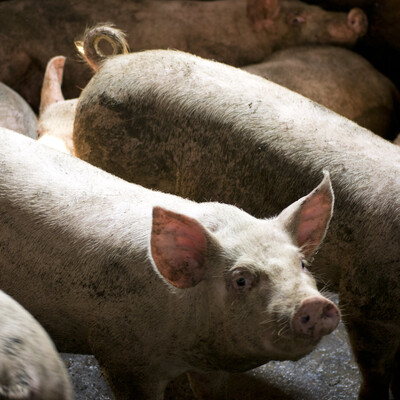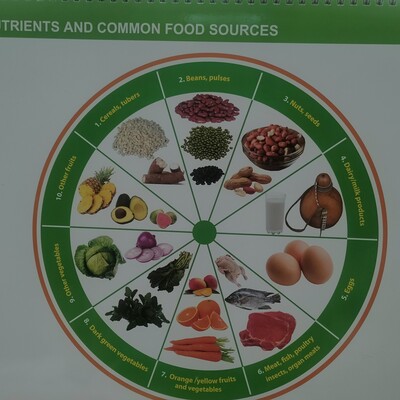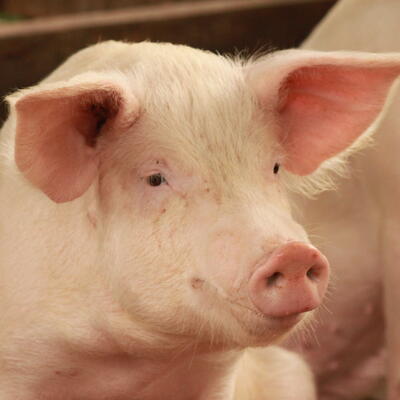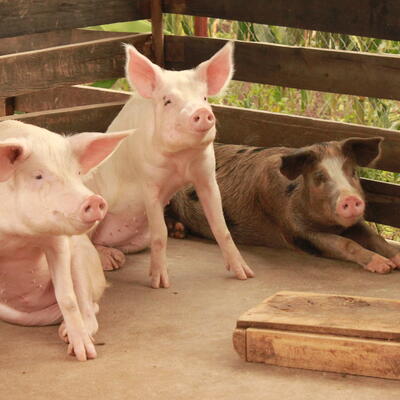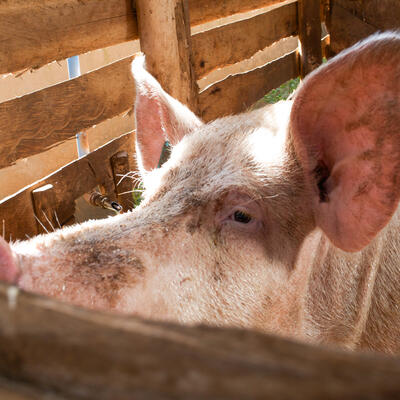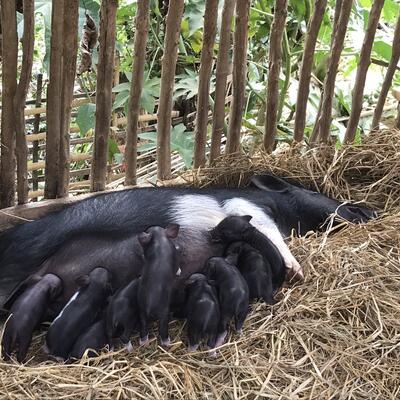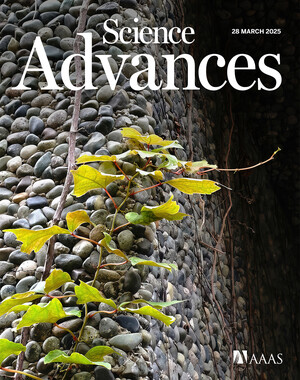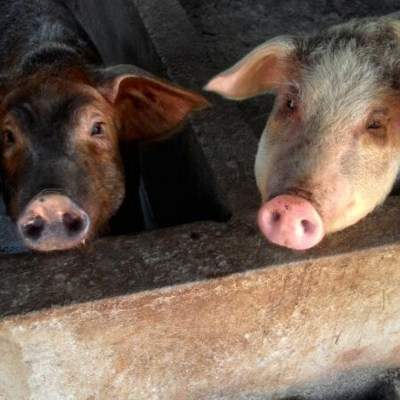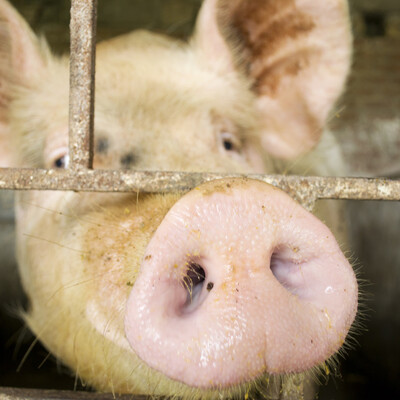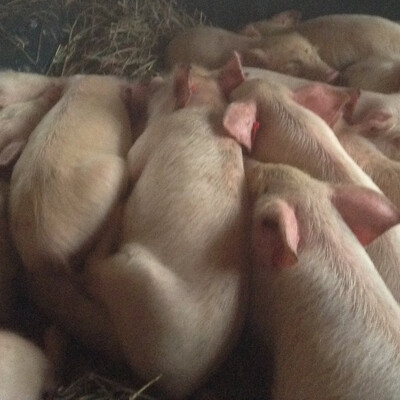
Research to policy: Improving animal disease prevention and control in Vietnam
The livestock sector is important to Vietnam's economy, contributing significantly to rural livelihoods and to food and nutrition security. However, it faces considerable challenges, particularly from animal diseases such as African Swine Fever (ASF). ASF, a highly infectious disease affecting pigs, has been classified as an epidemic under Circular No. 24/2019/TT-BNNPTNT by the Ministry of Agriculture and Rural Development. While ASF is not transmissible to humans, its rapid spread can devastate entire herds, leading to significant economic losses, undermining livelihoods, and threatening the agricultural sector.
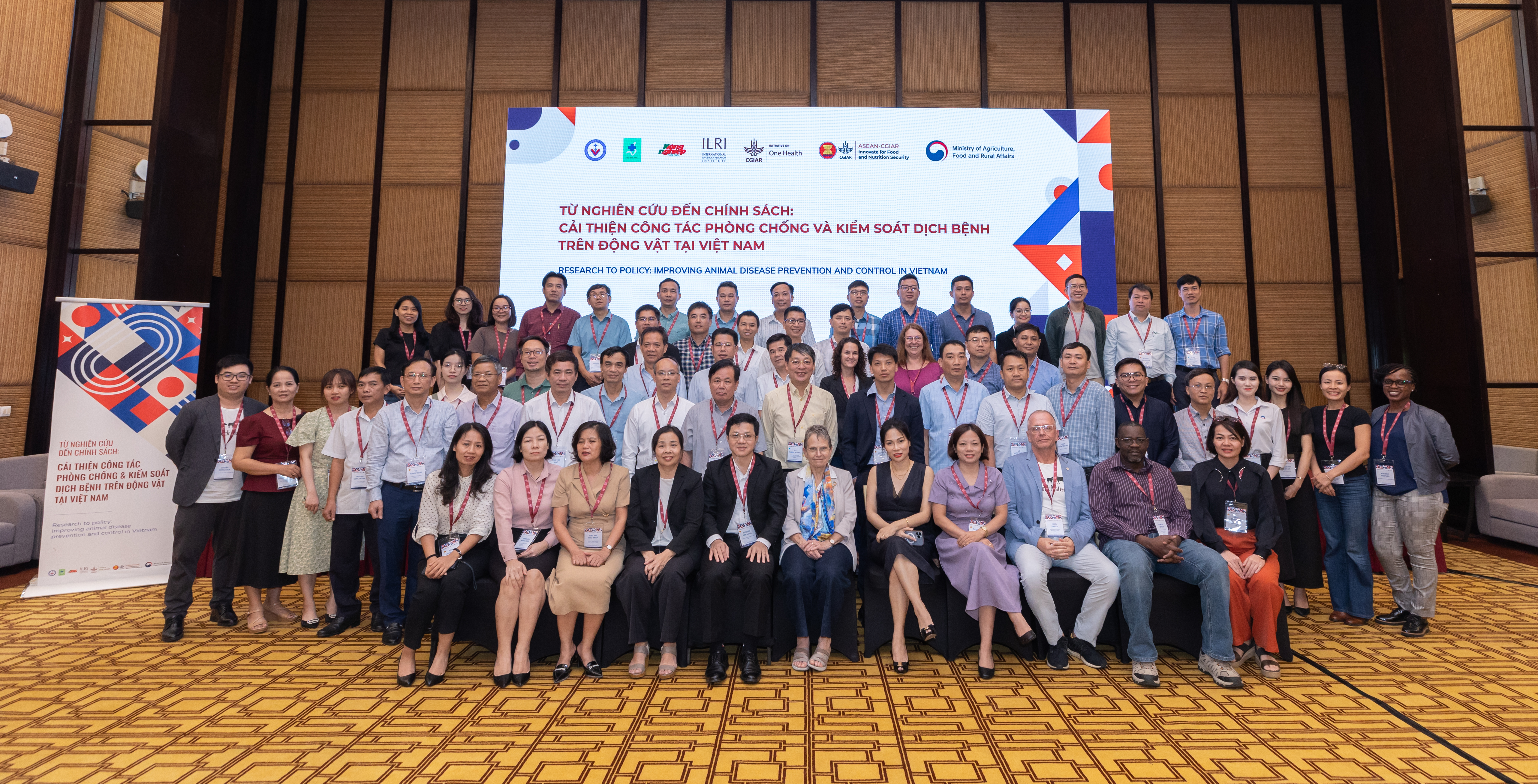
In response to the challenges posed by ASF, the Department of Animal Health (DAH), the National Institute of Veterinary Research (NIVR), and the International Livestock Research Institute (ILRI) have implemented research and projects in Vietnam. To support disease prevention and control in the country, a workshop on ‘Research to policy: Improving animal disease prevention and control in Vietnam’ was organized on 17-18 October 2024 in Quang Ninh Province, Vietnam.
Co-hosted by DAH, NIVR, and ILRI, the workshop brought together 70 participants from state agencies, academia, private sector, international organizations from Southeast Asia and Africa bridged the gap between research and policy, focusing on sharing recent research findings related to ASF prevention and control, both locally and globally. Presenters covered a wide range of topics, including an overview of the current ASF situation in Vietnam, innovative approaches to disease control, advancements in vaccine development, and success stories from stakeholders in the livestock sector.
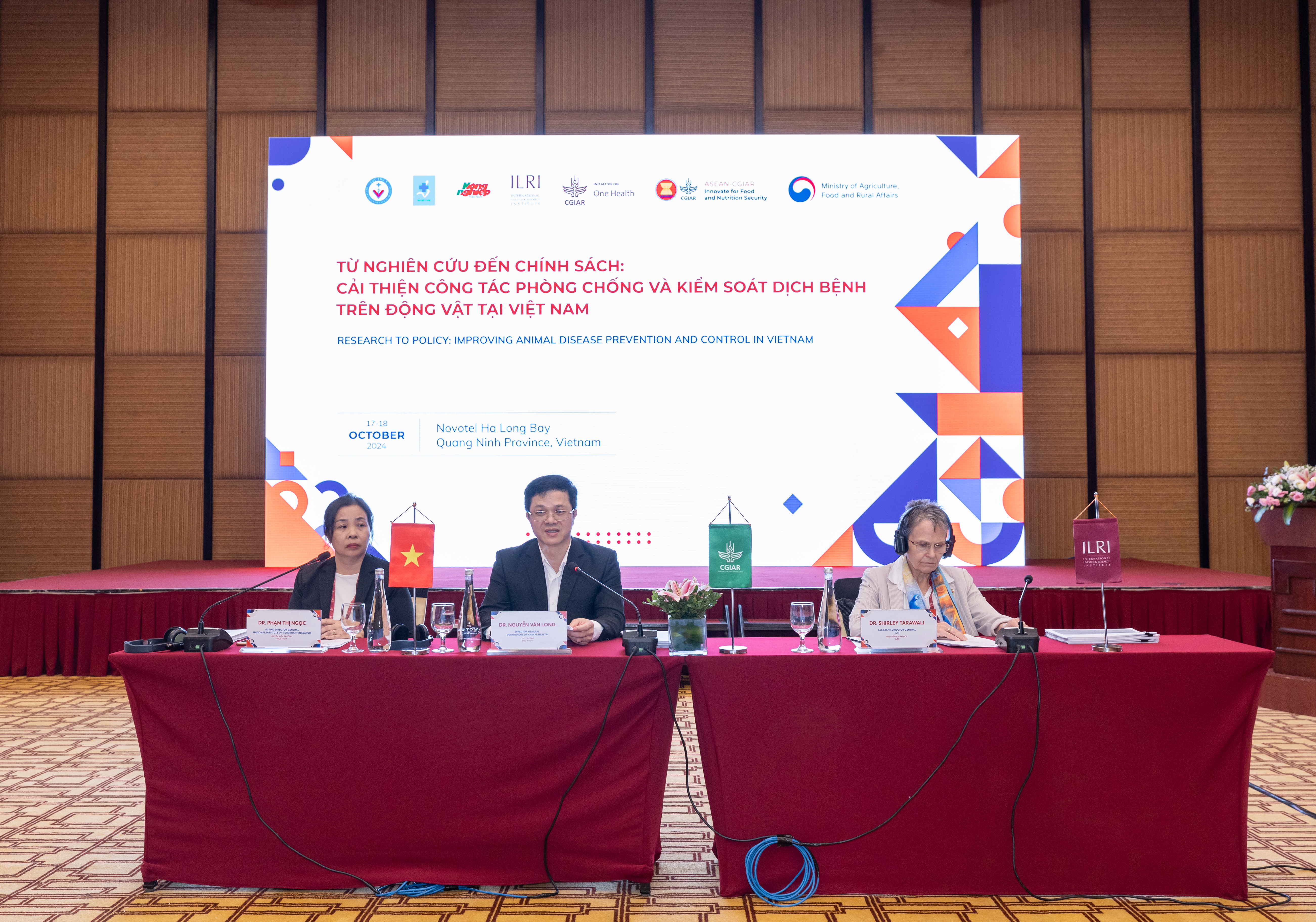
Shirley Tarawali, assistant director general of ILRI, emphasised the workshop’s significance, stating, ‘Addressing these challenges requires intensive effort from all stakeholders. The integration of research findings into policymaking is crucial for developing effective disease prevention and control strategies. Together, we can make a substantial difference in addressing the challenges faced by the livestock sector and thereby realise the full contribution of livestock to a more resilient and sustainable agricultural system.’
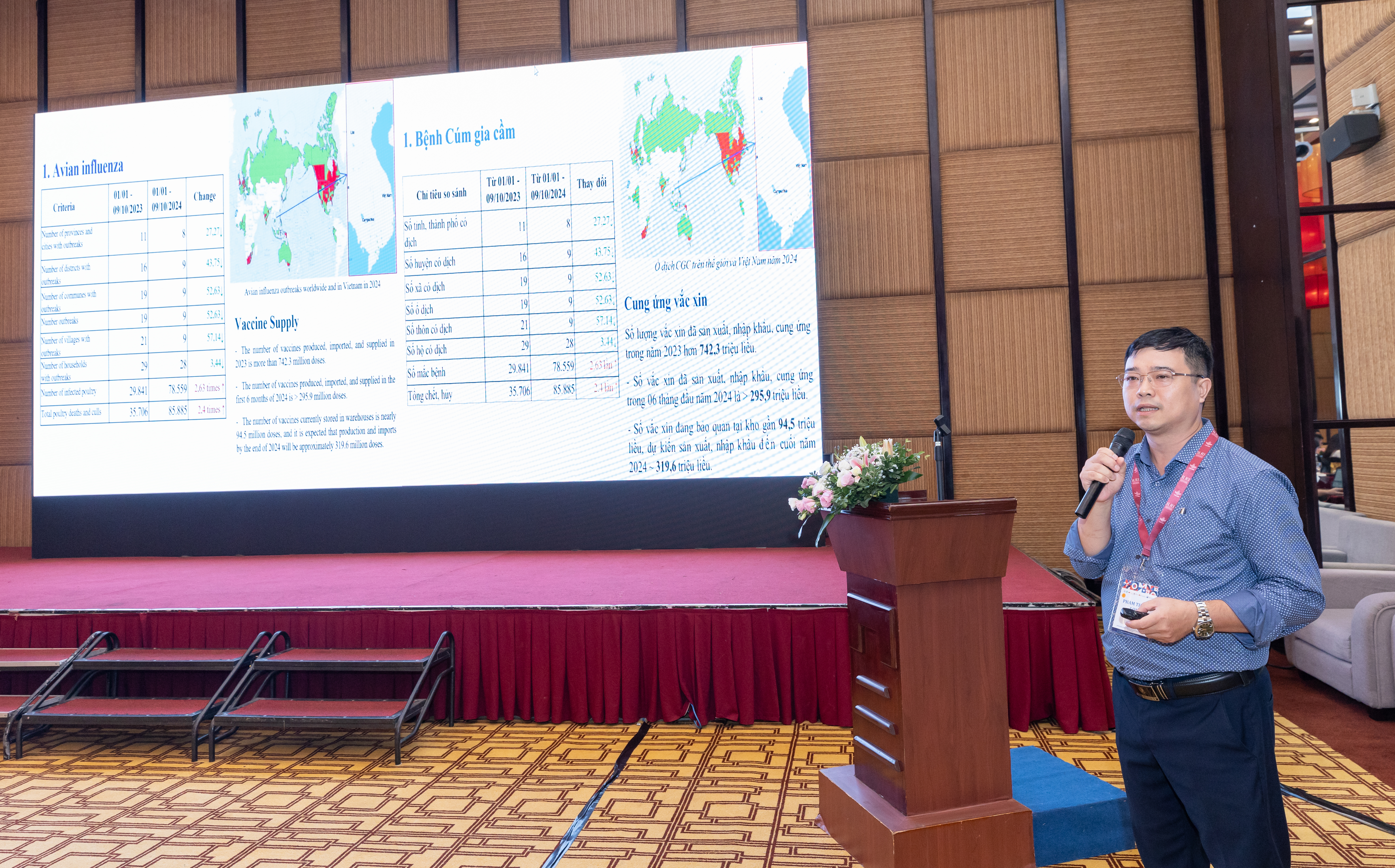
Nguyen Van Long, director general of DAH, offered insight into Vietnam’s ongoing fight against ASF. He emphasised the important role of government agencies and research institutions in combating the disease and highlighted the success of the National Plan on ASF Prevention and Control (NPAPC). He stated, ‘Our efforts have already yielded progress, including the development of locally produced ASF vaccines. However, challenges remain, and continued collaboration across sectors is essential to strengthen our response.’
Keynote presentations during the workshop provided vital updates on the state of animal health in Vietnam, highlighting the pressing issues of ASF, H5N1, lumpy skin disease, and foot-and-mouth disease. One presentation by Pham Thanh Long from DAH emphasised that ASF continues to spread in the northern regions, with over 1,000 outbreaks recorded in 2024. Despite the challenges, the government has focused efforts on improving vaccine availability and implementing biosecurity measures across livestock farms.
Further research presented during the workshop revealed ongoing efforts to develop ASF vaccines that are both effective and adaptable to evolving virus strains. As the virus continues to mutate, researchers stressed the importance of ongoing surveillance and vaccine optimisation to curb the disease’s spread.

The workshop’s plenary and panel discussions explored the gaps in Vietnam's current ASF policies and identified key areas for improvement. Participants agreed that strengthening surveillance systems, improving data-sharing mechanisms, and enhancing the capacity of both public and private laboratories are essential steps in better managing animal diseases.
One of the key points discussed was the role of digital tools in enhancing disease monitoring. The ICT4Health initiative, which integrates digital technology into Vietnam’s veterinary systems, was highlighted as a promising development. This initiative aims to extend veterinary services to district levels and build a comprehensive database for disease monitoring and response.
Workshop participants identified several follow-up actions. First, there is a strong push for scaling up the use of digital tools for disease reporting and monitoring. Additionally, building the capacity of local veterinary staff and fostering international collaborations will be crucial in combating ASF and other animal diseases. Local authorities are encouraged to carry out more frequent inspections and monitor the circulation of the ASF virus to identify potential risks early on.
The workshop paved the way for strengthening Vietnam’s veterinary services and ensuring that animal disease prevention and control are based on the best available scientific evidence. As Vietnam works to update its National Plan for ASF Prevention and Control for the 2026-2030 period, the insights gathered from this event will help shape policies and strategies aimed at building a more resilient livestock sector.
Media clippings:
- https://nongnghiep.vn/cai-thien-nang-luc-phong-chong-dich-benh-cho-chan-nuoi-o-viet-nam-d405075.html
- https://vietnamagriculture.nongnghiep.vn/improving-disease-prevention-and-control-capacity-for-livestock-farming-in-vietnam-d405084.html
- https://nongnghiep.vn/keo-nghien-cuu-lai-gan-chinh-sach-de-chong-dich-ta-lon-chau-phi-hieu-qua-d405094.html
- https://vietnamagriculture.nongnghiep.vn/bringing-research-closer-to-policy-to-effectively-combat-african-swine-fever-d405099.html
- https://vietnamagriculture.nongnghiep.vn/alarming-surge-in-dangerous-livestock-diseases-d405103.html
- https://nongnghiep.vn/thoi-diem-vang-de-ngan-chan-dich-ta-lon-chau-phi-la-4-ngay-ke-tu-khi-phat-hien-con-vat-chet-dau-tien-d405095.html
- https://vietnamagriculture.nongnghiep.vn/the-golden-time-to-prevent-asf-is-4-days-after-discovering-the-first-diseased-animal-d405114.html
- https://nongnghiep.vn/canh-giac-voi-ke-dich-asf-khi-viet-nam-co-qua-nhieu-chung-virus-d405130.html
- https://vietnamagriculture.nongnghiep.vn/beware-of-the-asf-enemy-as-vietnam-faces-multiple-virus-strains-d405158.html
- https://danviet.vn/cai-thien-cong-tac-phong-chong-dich-benh-dich-ta-lon-chau-phi-20241017155625366.htm
- https://nongnghiep.vn/giam-thieu-nguy-co-dai-dich-bang-he-thong-canh-bao-som-suc-khoe-dong-vat-d405191.html
- https://vietnamagriculture.nongnghiep.vn/reducing-pandemic-risk-with-animal-health-early-warning-systems-d405221.html
- https://nongnghiep.vn/chu-dong-ung-pho-bien-chung-moi-cua-virus-dich-ta-lon-chau-phi-d405215.html
- https://vietnamagriculture.nongnghiep.vn/proactively-responding-to-new-strains-of-the-african-swine-fever-virus-d405266.html
- https://nongnghiep.vn/du-an-chan-henh-cung-co-ky-thuat-chan-nuoi-an-toan-sinh-hoc-son-la-d405219.html
- https://vietnamagriculture.nongnghiep.vn/sapling-initiative-strengthens-biosecure-livestock-farming-techniques-in-son-la-d405270.html
- https://nongnghiep.vn/chu-dong-ung-pho-bien-chung-moi-cua-virus-dich-ta-lon-chau-phi-d405215.html
- https://nongnghiep.vn/video/nguy-co-dich-ta-lon-chau-phi-bung-phat-do-san-xuat-gia-tang-truoc-tet-tv405285.html






